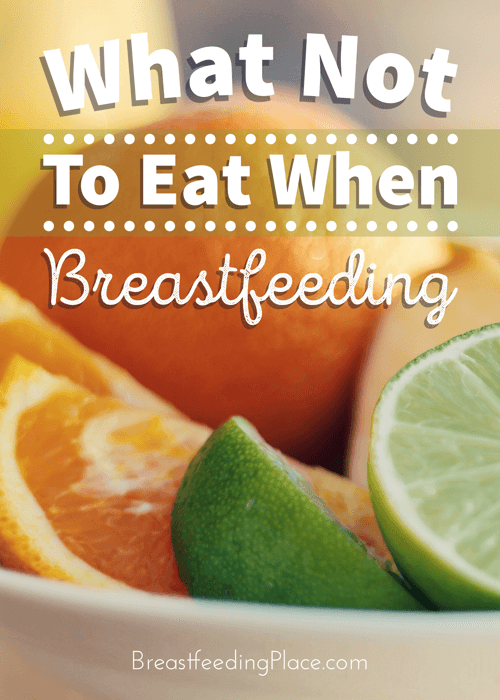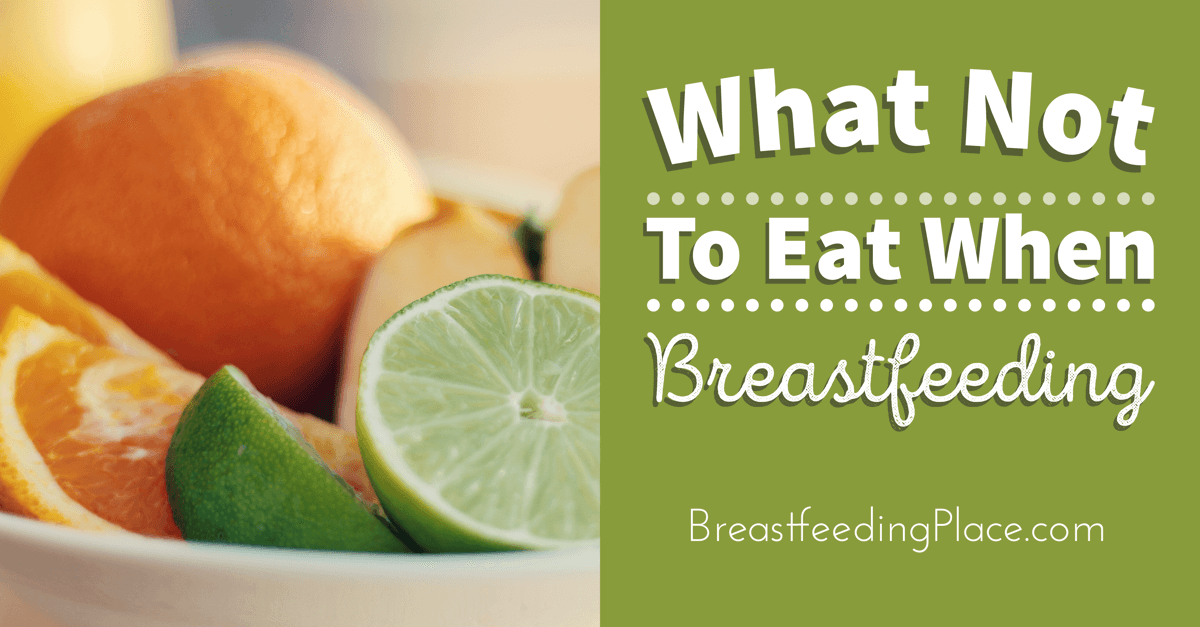When you were pregnant, you had to keep a close eye on your diet. Now that you’ve had baby, you may be wondering what not to eat when breastfeeding.1

Eating and Drinking: What Not to Eat When Breastfeeding
Alcohol: You won’t hear many practitioners advocating alcohol when you’re breastfeeding. However, new research says you should be fine with a few drinks – as long as you’re capable of caring for your baby, you should be ok to breastfeed. If you’re still concerned, however, you could just wait to drink right after you’ve breastfed your baby.
Fish: Although the rules on fish and breastfeeding are a bit more lax than they were with pregnancy, you still should avoid high levels of mercury (so skip the mackerel, shark, swordfish, and tilefish). You risk damaging baby’s developing nervous system if you ingest and pass on too much mercury. (However, certain fish oils can be very beneficial while breastfeeding.)
Caffeine: High levels of caffeine can make adults jittery, so just imagine what it can do to a bitty baby. Even though baby will receive a smaller amount than you, you may still want to reduce your intake if you’re a big coffee drinker (and no energy drinks, please!). The recommendation currently is to keep caffeine consumption to fewer than five cups per day! Again, you could always wait to drink your coffee until right after you’ve nursed. And remember that caffeine shows up in other places as well, including chocolate.
Allergy Foods: If you have a history of allergies in your family, try to avoid eating those foods while you breastfeed. It’s also a good idea to avoid some foods that people are commonly allergic to, even if you don’t know of anyone in the family with that allergy. Some examples include nuts, dairy, eggs, wheat, soy, and certain fish. Although you can’t eliminate all of them from your diet, you’ll want to watch those closely if baby seems particularly fussy after a feeding or develops a rash or any other allergy symptoms.
Herbs: Herbs are always tricky, whether you’re breastfeeding or not. Some herbs will decrease your milk supply, while others might actually be harmful for your baby. Although not a complete list, some potentially harmful herbs include ginseng, star anise, rhubarb, bladderwrack, black cohosh, and licorice root. Try to avoid herbal teas, and stick to nursing-specific teas (but always double-check the ingredients!). There are some lactogenic herbs you may find helpful, however.
Citrus: Citrus can agitate a baby’s growing digestive system and may make baby fuss and spit up more. It can also lend to an increase in diaper rash. If you think you need to lay off the citrus, try to compensate for the lack of vitamin C by eating other C-rich, non-citrus foods, like mangoes and strawberries.
“Gassy” Vegetables: You may love broccoli, but baby might not agree. Cabbage, cauliflower, asparagus, and Brussels sprouts are other common gas culprits, so avoid those if they seem to be making your baby gassier than usual.
You may find that some foods on this list don’t affect baby at all, while other foods that aren’t even listed might bother your baby. Pay attention to your food intake and baby’s signals. If you’re having a hard time noticing a pattern, try keeping a chart for a while of what you eat, when, and any symptoms or fussiness baby may have. You might have to try certain foods a few times before seeing an obvious pattern. Many mothers find that if a food adversely affects them, it bothers their baby as well.
If you’re concerned that some foods might be harmful to your baby, talk to your doctor, and have your chart ready if you’ve been keeping it. You should also talk to your doctor about any potential loss in nutrition caused by avoiding certain foods and how to compensate.
How about you? Did Baby tell you what not to eat when breastfeeding him/her?

Original article and pictures take www.breastfeedingplace.com site
Комментариев нет:
Отправить комментарий